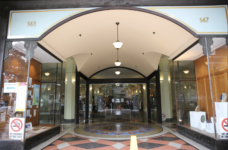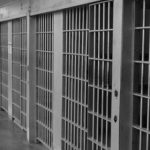NSW Justice Package 2025: Courtrooms for Vulnerable Complainants and More Prison Cells

The New South Wales government announced a half a billion dollar justice package on 2 June 2025, which is to be included as part of the 2025-26 NSW Budget. The package involves an additional $100.5 million in funding for Corrective Services NSW, a $145 million spend on reforming the NSW court system and $227 million in additional funding for the NSW Victims’ Support Service.
The reforms focus on supporting victim-survivors of domestic, family and sexual violence. But while changes that enhance services and assistance for the victims of violent crime have been welcomed, questions have been raised about the funding of prison expansion, due to a significant increase of inmates on remand.
In terms of New South Wales courts, the Downing Centre and John Madison Tower complex, which together comprise the main centre for courts in the Sydney CBD, will receive an overhaul, with $34.5 million set aside for these improvements, while $48.3 million is to be provided to the Office of the Director of Public Prosecutions (ODPP), in order to increase its number of active prosecutors.
Many of the changes the package will set in place serve to build upon past reforms that the NSW Labor government has been implementing around domestic, family and sexual violence, which include 2024 bail changes that specifically targeted such crimes, and the impact of these laws is flagged as the chief reason why an overcrowded state prison system needs more beds.
The reform package also involves $11.2 million for early intervention programs, in order “to begin long-term reform to our systems”, as part of $272.7 million in funding slated for frontline services as part of the next budget, but it’s this shift towards social justice reforms that critics underscore needs to be prioritised, as all other changes are geared to dealing with violence after it’s been perpetrated.
NSW court reforms
“This package is about building a safer NSW and better protecting victim-survivors. We will deliver new courtrooms and a unique new hub allowing vulnerable victim-survivors to testify from a different location than their perpetrator,” said NSW premier Chris Minns, in a 2 June 2025 statement.
“This hub will make a major difference, especially for women and children who have mustered the courage to give evidence against a domestic violence perpetrator,” the premier added.
One of the key reforms will include a $49.4 million hub to support victim-survivors in participating in legal proceedings, as it will allow them to give evidence via audio-visual link. This is expected to be in operation by late 2027, and it will serve to allow victim-survivors of violent crimes to focus upon testifying without the added trauma of having to be in the same location as their perpetrator.
In terms of the upgrade for the Downing Centre and John Madison Tower complex, an allocated $34.5 million in funding will cover the creation of at least five new courtrooms for the Sydney CBD, along with 10 virtual courtrooms, which will have the capacity to deal with remote bail hearings.
Additional supports will be put in place for child victims of sexual offences, which will involve $12.8 million in funding to support 15 new child support staff within the existing Child Sexual Offence Evidence Program. The new staff will assist with taking complaints regarding crimes and allow witnesses to prerecord their evidence, so it can then be later played in court during trials.
The ODPP will also receive an extra $48.3 million from the forthcoming budget, which will facilitate an additional 30 solicitors and increase the number of prosecutions.
However, Jennifer Ball, president of the Law Society of NSW, told LSJ Online that while she welcomed the additional lawyers slated for the ODPP, her organisation will double check the budget outcomes to make sure that there’s enough funding flowing to Legal Aid NSW and the Aboriginal Legal Service NSW/ACT, in order to adequately address the forthcoming increases in prosecutions.
NSW prison reforms
The Minns government is setting aside an extra $100.5 million “to address rising demand in the correctional system”, which NSW Labor puts down to its “tough new domestic violence bail laws”, which “have seen record numbers of alleged offenders held on remand”. The release notes that this is to ensure offenders are supported in “their rehabilitation and reintegration” into the community.
The NSW Bureau of Crimes Statistics and Research announced on 21 May that the NSW adult prisoner population in March 2025 had risen to its highest level – 13,103 inmates – since March 2020, when the COVID pandemic began. And from November 2023 up until last March an extra 1,055 adult prisoners were being incarcerated in NSW, which translates to an 8.8 percent increase.
Remand is the placing of those arrested over a crime, but not yet convicted or sentenced, in prison whilst they await their trial. In the March 2025 quarter, BOCSAR reveals that 43.7 percent of inmates in the NSW prison system were on remand, while, in terms of youth offenders, 70.7 percent of those kids incarcerated at the time were on remand.
Passed on 6 June last year, the Bail and Other Legislation Amendment (Domestic Violence) Bill 2024 has led to a massive increase in adult remandees, as it served to insert “serious domestic violence” offences and the offence of coercive control into section 16B of the Bail Act 2013 (NSW), which contains a list of offending that results in the alleged perpetrator having to ‘show cause’ for bail.
The 2014 enacted show cause bail regime reverses the traditional practice of requiring prosecutors to explain why an alleged offender should not be released on bail prior to going to trial, so now defendants have to show cause as to why they should be released into the community whilst awaiting trial, as the presumption is now against bail.
In a release on the day of the package announcement, Justice Reform Initiative executive director Dr Mindy Sotiri welcomed the victims’ supports that were announced but decried the overall funding package as representing “a missed opportunity to prioritise evidence-based policymaking that works to keep communities safe”.
“The evidence is very clear that the experience of prison increases the likelihood of future offending. If we want to get serious about community safety, we need to invest in the drivers of incarceration,” Sotiri made clear in regard to Minns’ planned prison expansion.
“All the research shows us that gaoling is failing. It doesn’t work to deter crime. It doesn’t work to address the drivers of crime, and it increases the likelihood of crime on release from custody,” the prison reform advocate continued. “NSW taxpayers are footing the bill for this ineffective approach.”
Victims’ support
The Minns government is providing an additional $227 million over the next five years to the Victims’ Support Service, which provides counselling, financial assistance and other services to victims of violent crime, modern slavery and road crime.
The package further provides $2.3 million to a new initiative of NSW Labor passed into law in late May, which ensures eligible victims are made aware that they can sign up to the Victims Register, which provides those who have suffered certain serious crimes with updates on how the person who offended against them is tracking in terms of their passage through the prison system.
The press release outlines that the NSW government will be providing frontline domestic, family and sexual violence services with $272.7 million in fundings as part of the 2025-26 budget.
This will include $9.3 million to fund the implementation of the serious domestic abuse prevention orders regime, which passed last September. It provides the courts with the ability to place certain serious past domestic violence offenders on these orders, which provide that they abide by certain imposed prohibitions, restrictions and requirements, whilst living in the community.
The $11.2 million earmarked for new prevention programs, includes providing for five-year-funding- contracts between government and frontline services, a $3.6 million initiative to ensure consistency in responses, $2.5 million to produce a domestic and family violence strategy, a $3.1 million data strategy so progress can be tracked and $2 million to fund a First Nations domestic violence strategy.
However, Domestic Violence NSW (DVNSW) chief executive Delia Donovan told LSJ Online that the $272.7 million slated for frontline services appears to be a continuation of funding not an increase, and she stressed how underfunded the domestic and family violence (DFV) frontline service sector is in this state.
Donovan added that the DFV sector has been consistently calling for its current funding to be increased by 50 percent over the next five years, however she stressed this call has been consistently overlooked.







